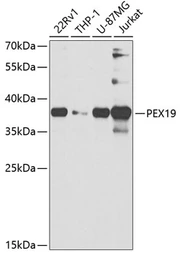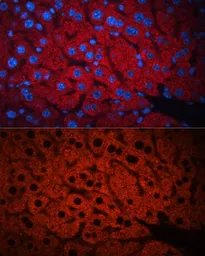PEX19 antibody
Cat. No. GTX32780
Cat. No. GTX32780
-
HostRabbit
-
ClonalityPolyclonal
-
IsotypeIgG
-
ApplicationsWB IHC-P
-
ReactivityHuman, Mouse

